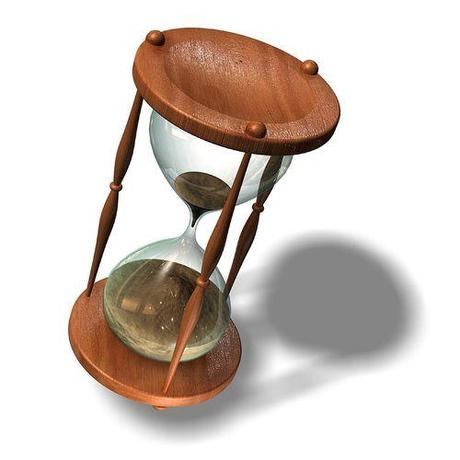Warning! Common sense ahead.
It is pretty much impossible for lawyers to bill litigation clients by the hour without raising serious conflicts between the best interests of attorneys and the clients they are bound to serve.
[Disclaimer - what follows is an attack on the billing practices of the vast majority if America's most powerful lawyers and law firms. The Sherman Law Firm, publisher of Wall Steeet Law Blog, DOES NOT BILL BY THE HOUR. Therefore, readers are cautioned to read with skepticism and to view this post as an advertisement on behalf of our firm.]
* * *
The excerpts that follow are from Wisegeek.com: What are Billable Hours?" -
"Nearly all law firms make their money by billing their clients by the hour. These are known as billable hours. The more hours billed, the more money the firm will make."
"If lawyers do not bill enough hours each year, they will not make enough money to cover their salaries. The firm's billable hours also cover overheads and partners' profit share."
No mystery so far. After all, when a law firm charges clients by the hour, isn't the firm really selling a product disguised as a service?
Think about it. McDonald's sell burgers. If burger sales plummet, so do profits. In the same way, most law firms sell hours. If the number of hours sold plummets, well, you get the idea, right?
The upshot is this:
Yes, quality of representation is important. But only to a point (since poor quality representation should, in theory at least, eventually leave a firm with fewer clients). The most profitable firms are the firms that spend the most time on their cases (sell the most hours to their clients), regardless of result.

And this brings us back to the wise folks at Wisegeek.com:
"Many firms also set bonus or penalty clauses to make sure that each lawyer achieves their billable hour quota. This can exert pressure on both home and work life with longer hours in the office. Tedious, time consuming tasks such as proofreading corporate reports, document reviews and travel hours are all required to be billed by the hour."
Again, see What are billable hours?
This "billable hour quota" is the real kicker. Whether they admit it or not, nearly all firms have minimum billable hour requirements. These requirements are extremely difficult to meet (often at least 2000 billable hours). And there is intense pressure inside most firms to meet or exceed these quotas.
* * *
As a client, you may lose even when you win. (No, this is not a brain teaser.) Here's what we mean -
"Victory" in litigation often costs more than it should because law firms often bill more than they should. Why? Well, as we (and Wisegeeks.com) explained above, law firms expect their lawyers to bill a whole lot of hours. In fact, the volume of required billable hours is so high that it is extremely hard to achieve. This fact - and it is a fact - is problematic for many reasons. From a client perspective, the most problematic issue is that a whole lot of law firms reward the lawyers that bill more hours with bigger bonuses, raises, promotions, etc. Conversely, lawyers on the short end of annual billable hour totals are often penalized. The penalties can range from delayed partnership to no possibility of partnership to the ultimate penalty, termination.
Publicly, most firms will deny all of this stuff. Don't believe it. If you have any friends or family who are lawyers in private practice (as at least some of you must), ask whether their firms ever circulate memos or reports that list hours billed by each attorney. Nine times out of ten, the answer you will get, if your friend or family member is being honest with you, is YES. This is because firms do circulate billable hour reports, at least to the partners, on a regular basis. At many firms, these reports go around each month.
The bottom line? Lawyers need to find ways to bill hours. Thus, some lawyers, either on their own initiatives or under implied or coded orders from a superior, do unecessary or repetitive work for the sole purpose of billing more hours. Others simply pad the hours they report.
Before you judge too harshly, ask yourself if you might consider jacking up hours on a big corporate client if you thought your job might be on the line. The problem, in other words, is systemic.

Clients sometimes suspect that they are being charged too much, but it is really hard to know for sure. And, absent a whistleblower, overbilling is nearly impossible to prove. Translation? The problem isn't going away any time soon.
A quick hypothetical example to illustrate the problem...
Your company is the plaintiff in a lawsuit. In the complaint, you seek $3 million in compensatory damages. You settle for $2 million. Sounds pretty good, right?
But then, when you add up the bills from your attorneys, you are a little bit disturbed. Legal fees and costs total $1.5 million. You think about complaining. The bill seems awfully high.
Then again, the net "value" of your settlement is plus $500,000. That's half a million more than you had before your very able lawyers put in all of those hours. At the end of the day, you feel like you won.
But how do you know that the actual fee wasn't way too high? What if the hourly billings etc. should have been closer to $1 million? Or 500,000?
Maybe your lawyers repeated research tasks or turned over rocks that could have been left unturned. Or - worse - what if you were a victim of phantom billing?
In a big case, a few extra hours per lawyer per week can add up to a lot of bogus fees very easily.
Think of it this way -
Each unecessary or imaginary hour billed is real money that a law firm has stolen from its client.
* * *
Even some big firms concede serious problems with billing by their litigation clients by the hour.
In 2009, for example, Evan R. Chesler, a Presiding Partner (at least in 2009) at mega-firm and billable hour factory Cravath, Swaine & Moore wrote an opinion piece for Forbes Online called "The Billable Hour Must Go."
Here are some choice comments from the pen/keyboard of Attorney Chesler:
"Clients have long hated the billable hour, and I understand why. The hours seem to pile up to fill the available space."
* * *
"The clients feel they have no control, that there is no correlation between cost and quality."
* * *
"The billable hour makes no sense, not even for lawyers. If you are successful and win a case early on, you put yourself out of work. If you get bogged down in a land war in Asia, you make more money. That is frankly nuts."
Mr. Chesler also pointed out that elimination of the hourly billing model would prevent clients from being "surprised by a whopper bill and met by the standard (albeit true) explanation that 'litigation is unpredictable'."
Enough said? We think so.

